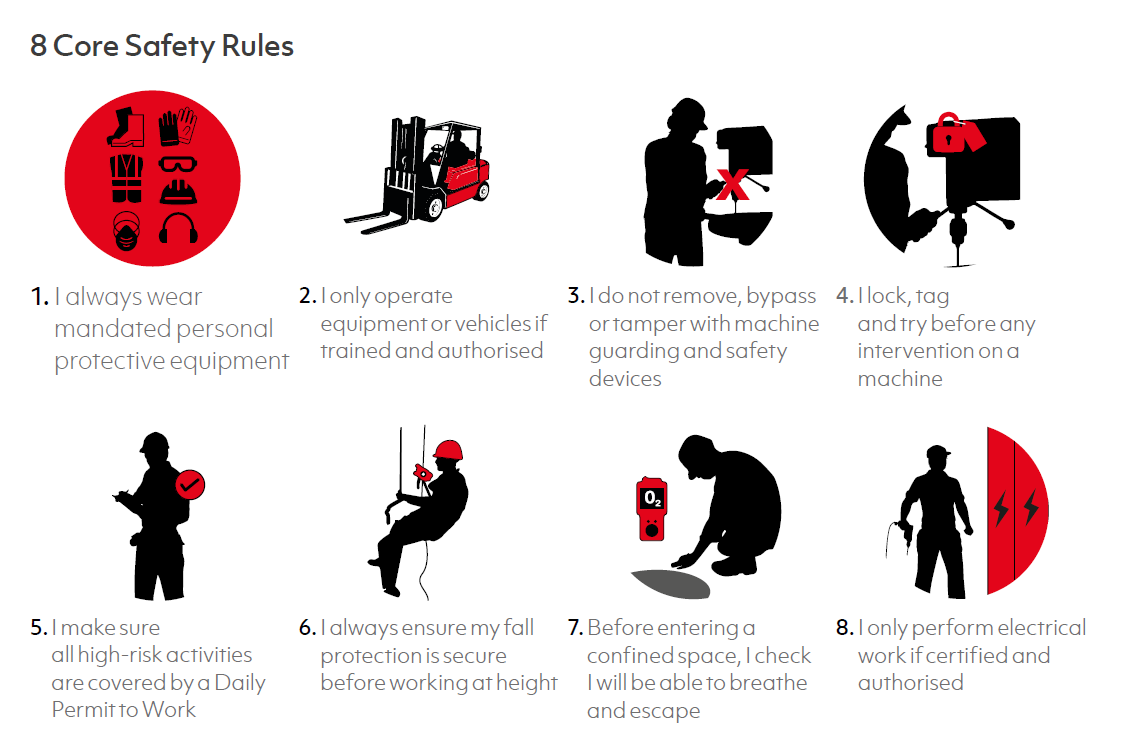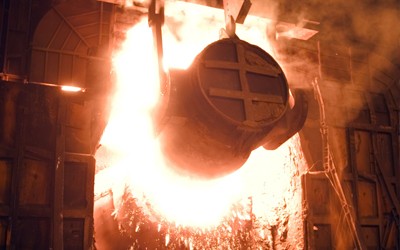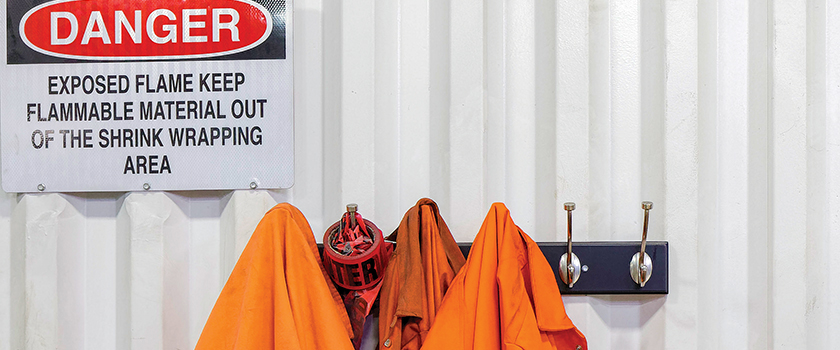Health and safety is one of Vesuvius’ key strategic objectives, and our overriding commitment to health and safety is embedded throughout the organisation. Our approach is to identify, eliminate, reduce or control all workplace risks, and an ongoing system of training, assessment and improvement is in place to focus on achieving this. We remain fundamentally committed to protecting the health and safety of employees, contractors, visitors, customers and any other persons affected by our activities.
Safety is therefore our top priority. We want to become a zero-accident company and are striving to become a best-in-class organisation for safety performance and leadership.
Our principles
- Good health and safety is good business
- Safety is everybody’s responsibility
- Working safely is a condition of employment
- All work-related injuries and work-related ill health are preventable
Safety Performance in 2024
Our LTIFR of 0.52 per million hours worked in 2024 was lower than 2023 (0.60), but we recognise that there is more work left to do. The LTIFR for not directly supervised contractors and visitors was 0 in 2024 (2023: 1.6).
Fatalities and severe injuries
There were no work-related fatalities in 2024. During 2024, one employee suffered a finger amputation (during the handling of a 1 tonne bag of material) and three suffered injuries requiring surgery and hospital stays. We are actively taking steps to learn from these severe injuries and to improve our systems and procedures to prevent any similar occurrences.
Safety training
In 2024, more than 11,000 Vesuvius employees (representing 81% of the total workforce) received more than 155,900 hours of training on safety standards, representing on average, more than 11 hours per person. In addition to training on Group Safety Standards, Business Units and sites develop and offer safety leadership programmes (TurboS) and courses addressing the specific processes and risks. Communication and training on hand safety and ergonomic practices have been major areas of recent focus.
Download our safety performance five-year table with main performance indicators








